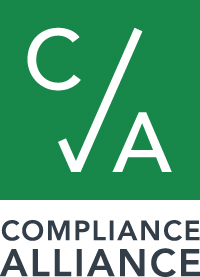|
Question:
I’m being told we can opt people in for overdraft protection. Is that true? Answer: Reg. E sets out the requirements for providing customers with overdraft services for paying an ATM or a one-time debit card transaction. Under the Reg. E requirements, before the bank can assess an overdraft fee for paying an ATM or one-time debit card transaction, the customer must affirmatively consent to such coverage. This does not mean that the bank cannot pay the overdraft item, it merely means that without the customer’s affirmative consent, the bank may not assess an overdraft fee for paying those items. (b) Opt-in requirement -- (1) General. Except as provided under paragraph (c) of this section, a financial institution holding a consumer's account shall not assess a fee or charge on a consumer's account for paying an ATM or one-time debit card transaction pursuant to the institution's overdraft service, unless the institution: (iii) Obtains the consumer's affirmative consent, or opt-in, to the institution's payment of ATM or one-time debit card transactions; and § 1005.17(b)(1)(iii): https://www.consumerfinance.gov/policy-compliance/rulemaking/regulations/1005/17/#b-1-iii (2) Conditioning payment of other overdrafts on consumer's affirmative consent. A financial institution shall not: (i) Condition the payment of any overdrafts for checks, ACH transactions, and other types of transactions on the consumer affirmatively consenting to the institution's payment of ATM and one-time debit card transactions pursuant to the institution's overdraft service…. § 1005.17(b)(2)(i): https://www.consumerfinance.gov/policy-compliance/rulemaking/regulations/1005/17/#b-2-i Question:
We are moving to a new ChexSystem benefit whereby the credit score will be provided to us. However, we will not use the score in making the determination to deny an account opening. Since we are not using it, do we have to include the additional credit score disclosures? Answer: If you did not use a credit score in your decision, then there is no technical need to add include the additional disclosures. However, the issue comes in the form of showing that the bank did not actually use the score. So, if the bank does choose not to utilize the credit score disclosures, then it needs to thoroughly document that fact. Section 1100F of the Dodd-Frank Act amended the FCRA to include additional disclosure requirements when adverse action is taken because of the consumer’s credit score. ... But if the credit score did not play a role in the decision to take adverse action, these disclosures are not required. Fed. Res., Consumer Compliance Outlook, Adverse Action Notice Requirements Under the ECOA and the FCRA: https://consumercomplianceoutlook.org/2013/second-quarter/adverse-action-notice-requirements-under-ecoa-fcra/ Question:
I have a list of reasons for denial on a loan, but is there a separate list of reasons for denying a deposit that are standard reasons? Answer: Unfortunately, there is not a model list of reasons for deposit accounts. The bank may be able to modify some of the reasons in the model forms for credit accounts though, and you can find those in Regulation B here: https://www.consumerfinance.gov/policy-compliance/rulemaking/regulations/1002/C/ Question:
We are in the process of underwriting a Commercial 10 YR Term loan to a Church for the purpose of purchasing a single family residence (zoned as single family) that will be used as a place of worship. Is this a HMDA covered transaction or is there an exemption that exists that excludes this loan? Answer: If the loan will be replaced by permanent financing later, then it's possible that it might fall into the temporary exception: 1. Temporary financing. Section 1003.3(c)(3) provides that closed-end mortgage loans or open-end lines of credit obtained for temporary financing are excluded transactions. A loan or line of credit is considered temporary financing and excluded under § 1003.3(c)(3) if the loan or line of credit is designed to be replaced by separate permanent financing extended by any financial institution to the same borrower at a later time. For example:... https://www.consumerfinance.gov/policy-compliance/rulemaking/regulations/1003/Interp-3/#3-c-3-Interp Otherwise, if not, the bank may be able to document that this is not in fact used as a residence, and thus, does not fall into the definition of a "dwelling": 3. Exclusions. Recreational vehicles, including boats, campers, travel trailers, and park model recreational vehicles, are not considered dwellings for purposes of § 1003.2(f), regardless of whether they are used as residences. Houseboats, floating homes, and mobile homes constructed before June 15, 1976, are also excluded, regardless of whether they are used as residences. Also excluded are transitory residences such as hotels, hospitals, college dormitories, and recreational vehicle parks, and structures originally designed as dwellings but used exclusively for commercial purposes, such as homes converted to daycare facilities or professional offices. https://www.consumerfinance.gov/policy-compliance/rulemaking/regulations/1003/Interp-2/#2-f-Interp-3 |
Archives
March 2020
CategoriesCompliance Alliance offers a comprehensive suite of compliance management solutions.
To learn how to put them to work for your bank, call (888) 353-3933 or email info@compliancealliance.com. |


 RSS Feed
RSS Feed
